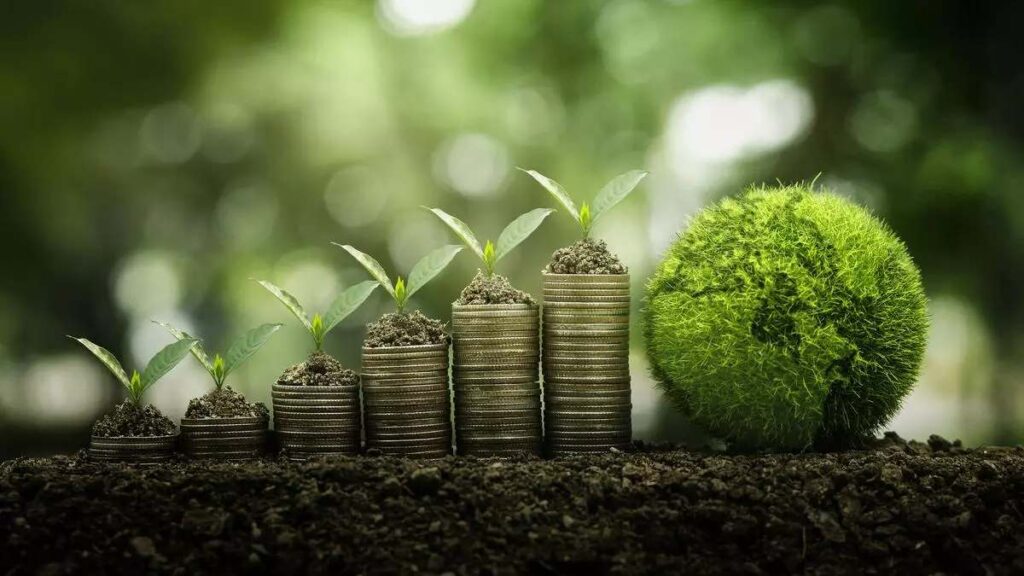The Indian Government’s newly introduced Green Credit policy offers individuals and companies the opportunity to earn money by preserving nature. This policy has the potential to support climate actions nationwide while simultaneously contributing to the enhancement of agriculture and the safeguarding of other valuable natural resources.
The policy encourages people and companies to participate in a special program, earning rewards, called green credits, for environmentally beneficial actions. Those who are engaged in voluntary activities that benefit the environment can earn green credits as rewards and sell it in a specific platform. This program is part of a national effort to encourage eco-friendly actions, and it builds on the “LiFE” (Lifestyle for Environment) campaign.
This policy has the power to positively influence climate-related efforts across India. It can inspire and support a range of activities aimed at addressing climate challenges and making our environment healthier and more sustainable. It can play a crucial role in strengthening the agricultural sector and ensuring the protection of essential natural resources.
What is this Program?
The Green Credit program is a way to earn rewards, or green credits, for carrying out activities that have a positive impact on the environment. These credits can be traded on a dedicated exchange. Participation in this program is entirely voluntary.
Covered Activities
This program focuses on eight kinds of activities to promote environmental well-being.
1. Tree Plantation: Activities aimed at increasing green cover across the country.
2. Water Management: Encouraging practices like water conservation, harvesting, efficient use, and wastewater treatment and reuse.
3. Sustainable Agriculture: Promoting natural and regenerative agricultural practices, land restoration, and improvements in productivity, soil health, and food quality.
4. Waste Management: Fostering sustainable waste management practices, including collection, segregation, and environmentally responsible disposal.
5. Air Pollution Reduction: Supporting measures to reduce air pollution and other pollution-reduction activities.
6. Mangrove Conservation and Restoration: Actions to preserve and restore mangroves, are crucial for the environment.
7. EcoMark: Manufacturers can obtain an ‘Ecomark’ label for their goods and services.
8. Sustainable Building and Infrastructure: Encouraging the construction of environmentally sustainable structures.
How to Earn Green Credits?
To earn green credits, participants must electronically register their activities through a dedicated website. These activities will be assessed by a designated agency. After verification, the participants will receive a certificate of green credit. The calculation of green credits is based on various factors, including resource requirements, scale, scope, size, and other relevant parameters needed to achieve desired environmental outcomes. The Indian Council of Forestry Research and Education (ICFRE) shall be the administrator of the program which will develop guidelines, processes and procedures for implementation of the program.
Green Credit Registry and Trading Platform
A Green Credit Registry and a trading platform will be established. This platform will enable participants to trade their green credits.
Incentivizing Environmentally Positive Action
The Green Credit program aims to motivate industries, companies, and individuals to fulfill their existing legal obligations. This program also motivates them to undertake additional voluntary environmental measures. However, green credits obtained for legal compliance cannot be traded.
Different from Carbon Credits
This Green Credit program is separate from the Carbon Credit Trading Scheme established under the Energy Conservation Act, of 2001. Carbon Credit is about reducing carbon emissions while the Green Credit program is to encourage voluntary environmental activities by incentivising it. People and companies can earn both Carbon Credits and Green Credits from the same activity.
Also Read
India Enroute To Reduce 45% Emissions By 2030
By Sibi Sathyan
































